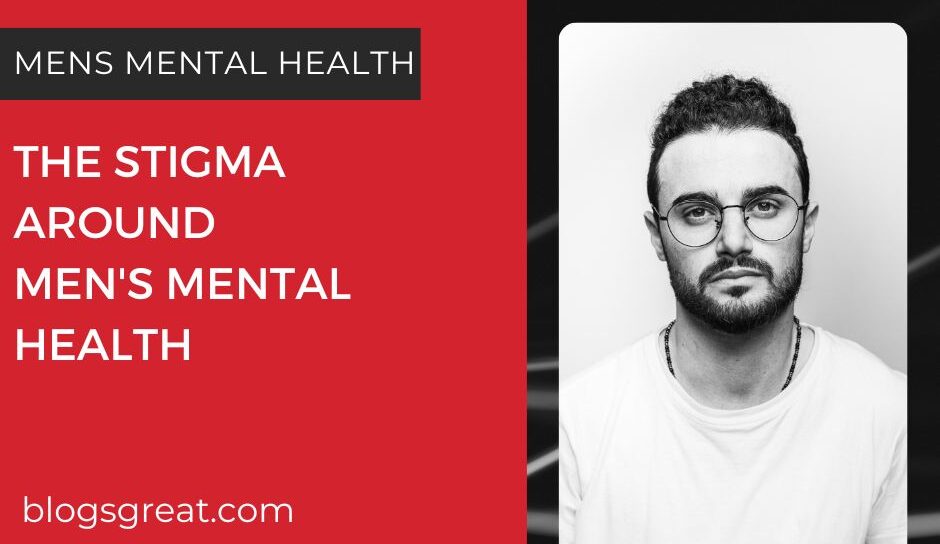Introduction: Why mens mental health month means something
Every June, men’s mental health sheds light on a subject that is often submerged in silence. Despite increasing awareness, mental health to men is ignored due to social expectations and stigma. This month, the old norms challenge and encourage men to prioritize their emotional welfare and take help without shame. In this post we will find that men’s mental health is worth noting, how to identify conflicts and action -rich ways to promote the culture of supports.

The Crisis We Can’t Ignore: Understanding Men’s Mental Health
Mental health does not discriminate, but social pressure often makes men feel isolated. Studies show that 1 in 5 men experience mental health problems such as depression or anxiety, but less than 1 in 3 are professional. Unfortunately, men gave the United States in 75% of the deaths of suicide, highlighting the strict intervention requirement. Cultural narratives that like masculinity with emotional stoism, many men in silence, are afraid of decisions if they accept vulnerability blogsgreat.com.
Men’s Mental Health Month is not just about raising awareness – it’s all about writing the script again. By normalizing interactions about mental health, we can destroy harmful stereotypes and save our lives.
Recognizing the Signs: Mental Health Struggles in Men
Mental health challenges are often different in men than women. While some symptoms overlap, social conditioning can motivate men to suppress feelings or express the crisis through anger or negligence. The main indications that include including:
- Emotional Changes: Irritability, sudden mood swings, or apathy.
- Behavioral Shifts: Withdrawal from social activities, increased substance use, or risk-taking behaviors.
- Physical Symptoms: Unexplained fatigue, changes in appetite, or chronic pain.
Men might also downplay their struggles with phrases like “I’m fine” or “I’ll handle it myself.” Recognizing these subtle cues is critical for early intervention.
Why Men Don’t Seek Help: Breaking Down Barriers
Understanding why men avoid help is key to addressing the crisis. Common barriers include:
- Societal Expectations: From a young age, men hear messages like “man up” or “boys don’t cry.” These phrases ingrain the idea that vulnerability equals weakness.
- Stigma: Fear of being labeled “weak” or “dramatic” prevents men from opening up, even to loved ones.
- Lack of Awareness: Many men don’t recognize their symptoms as mental health issues, dismissing them as stress or fatigue.
- Limited Resources: Mental health campaigns often overlook male-specific needs, leaving men unsure where to turn.
Addressing these barriers requires systemic change—starting with redefining strength to include courage in seeking help blogsgreat.com.
How to Support the Men in Your Life
Creating a safe place for men to share their struggles begins with sympathy and patience. This is how there is a difference:
1. Start the Conversation (Without Pressure)
Start dialog slowly. Try the sentences, “I’ve seen you look stressed recently – talking?” Avoid ultimatum or decision. Tell them to listen, not to “heal” them.
2. Challenge Harmful Stereotypes
Call toxic phrases like “man up” in everyday conversations. Celebrate examples of men who prefer mental health, whether in your media or your community.
3. Encourage Professional Help
Therapy is not a final solution – this is a tool for development. Psychology shares resources as appropriate medical directors or apps such as app and headspace. Frame it as a step toward strength, do not surrender.
4. Lead by Example
Share your own mental health journey or struggles. Vulnerability is contagious and can inspire others to open up.
Resources for Men’s Mental Health
Access to the right tools can be life-changing. Here are trusted resources:
- Crisis Support: The 988 Suicide & Crisis Lifeline offers 24/7 help via call, text, or chat.
- Therapy Platforms: BetterHelp and Talkspace provide affordable online counseling.
- Community Groups: Organizations like Movember and Men’s Health Network focus on men’s mental wellness.
- Books: “I Don’t Want to Talk About It” by Terrence Real explores male depression, while “The Mask of Masculinity” by Lewis Howes tackles societal pressures.
Moving Forward: Beyond Men’s Mental Health Month
While June is a catalyst for change, support should not be finished there. Employers can promote mental health days, the school can learn emotional literacy, and the media can portray different, authentic male experiences. Small tasks – checking a friend, sharing resource or going in for changes in politics – to create ripple effects.
Mental health for men is not a “niche” issue – it affects families, jobs and communities. By promoting such an environment where men feel safe talking, we pave the way for healthy future.
Conclusion: Silence Isn’t Strength Let’s Change the Narrative
The mental health month for men reminds us that the treatment begins with conversation. It’s time to change old stereotypes with compassion and action. Whether you are struggling in silence or a person who cares about one, remember: Help is not a sign of weakness – this is the most brave step you can take. Together we can create a world where no one suffers alone.

